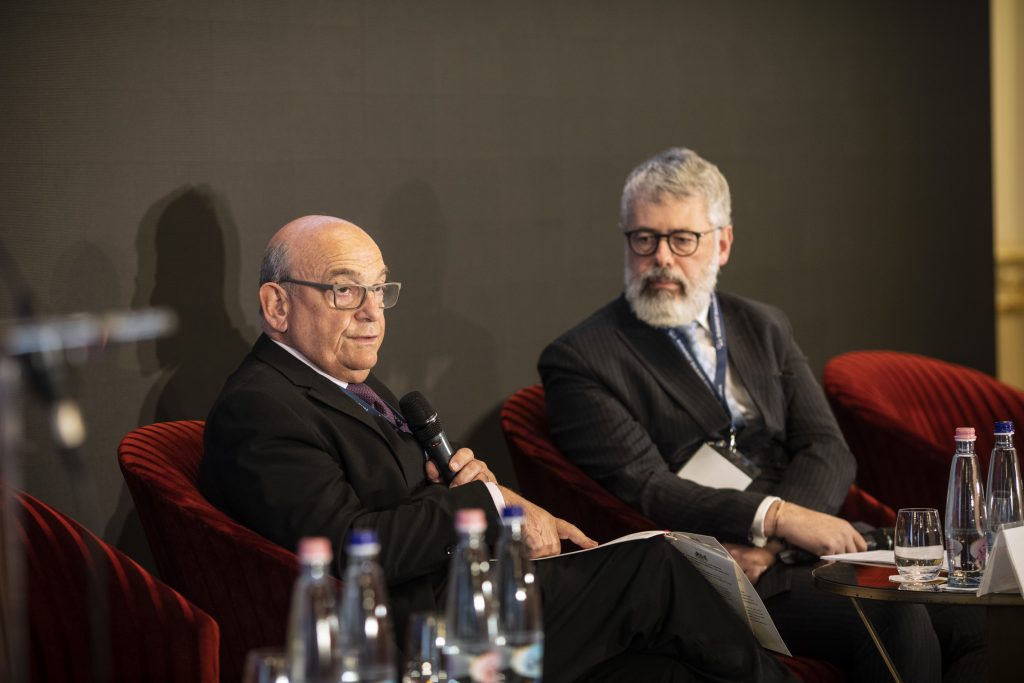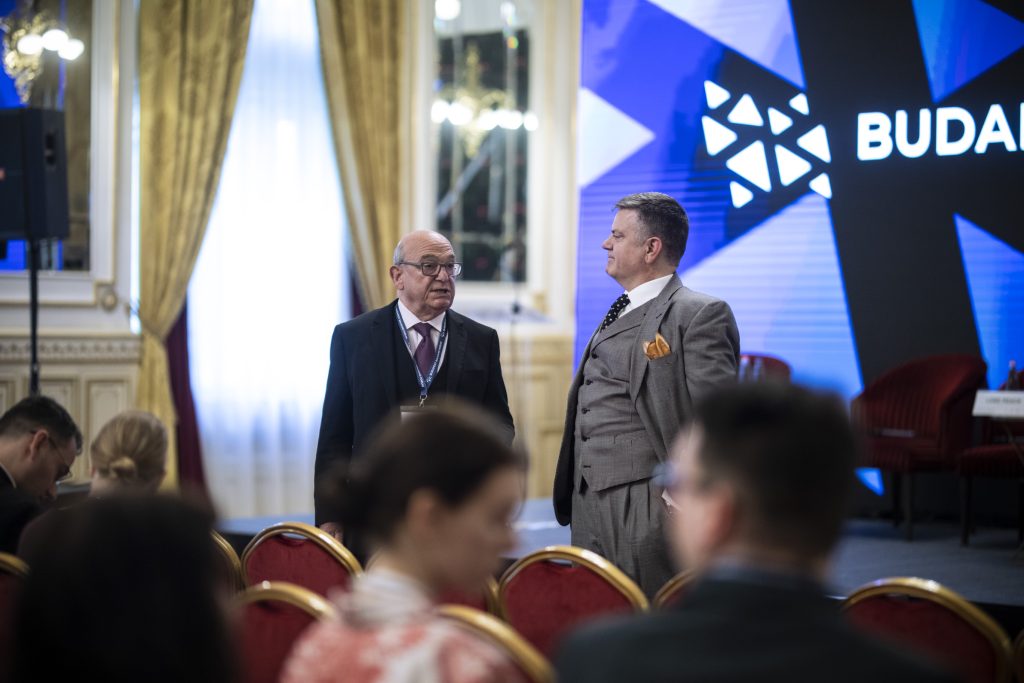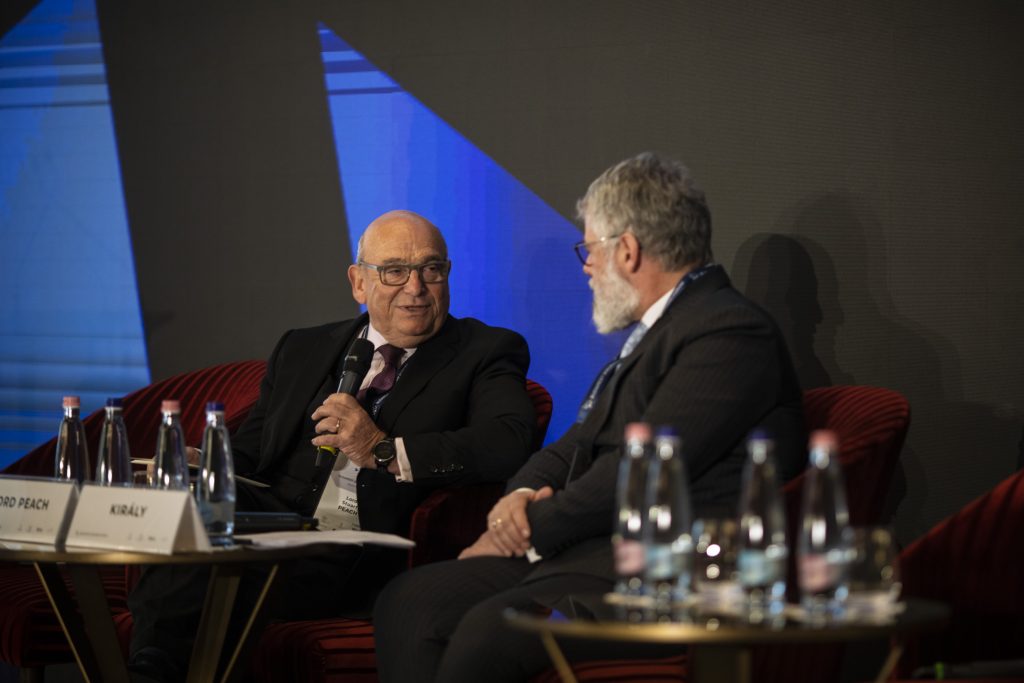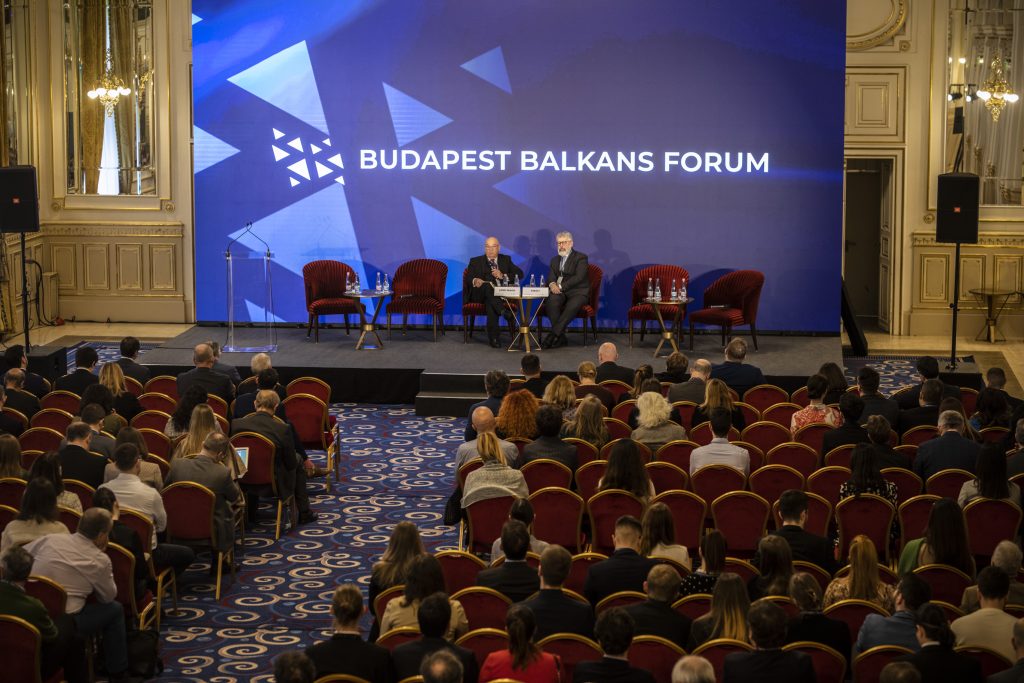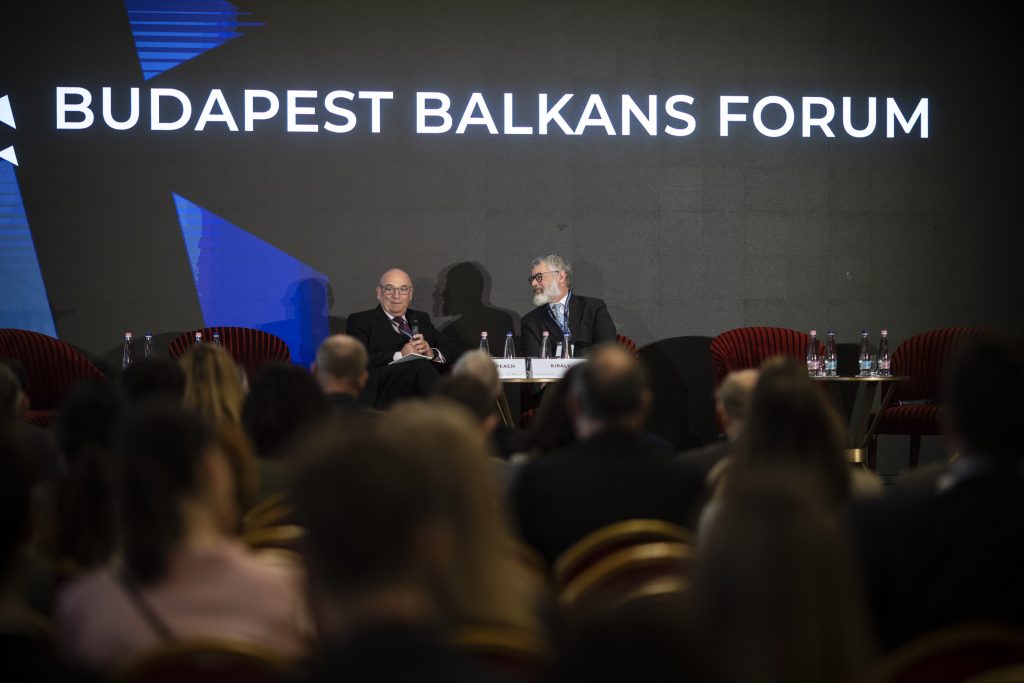The second day of the Budapest Balkans Forum was opened by the keynote speech of Lord Stuart Peach, Special Envoy to the Western Balkans of the United Kingdom. The panel was moderated by András Király, Head of the Strategic Planning and Analysis Office at the Sándor Palace.
Lord Peach reaffirmed the commitment of the United Kingdom (UK) to the Western Balkans and the importance of close collaboration with allies and friends. The Special Envoy prescribed the region as the “heart of Europe” and as “a prosperous land built on human rights and democracy”, while highlighted the relevance of regional cooperation. He also drew attention to the threat that political disputes could easily develop into security issues and the importance of not letting this happen.
In the point of view of Lord Peach, there are still many tensions in the region due to individual and cross-border issues as well as too much evidence on organized crime, that “still dominates criminality and effects the life of the people”. Nevertheless, he emphasized the priority of strategic cooperation as Russia continues to threaten the security of the region, as the tragedy of the Ukrainian people shows it. Once again, Lord Peach referred to the fact that security issues must not be ignored and “one must not let political crisis to become the next security problems.”
The moderator then turned the discussion to cyber security, especially the situation in the Western Balkans. Lord Peach emphasized the seriousness of the question and reaffirmed that the UK and NATO partners are continuing to support cyber security and to strengthen national resilience. The UK also supports younger generations as the country finds it chiefly essential to develop cyber security awareness among the youth to make everybody understand the threats. Lord Peach repeated that “resilience is a big thing and needs to have a high priority”, then sent his message to the younger generations: “looking forward to working with you and to learning from you”.
The moderator noticed the commitment of the UK towards the Western Balkans and asked about the general terms of the country’s engagement. Lord Peach highlighted defence, economy, and security, including cyber security as “particularly vulnerable areas” in the region. He considered the development of the infrastructure also as a critical matter, adding that “the region deserves better infrastructure, but we are working on that”.
The conversation then dealt with the situation in Kosovo and how Lord Peach sees the development of Pristina-Belgrade relations. The Special Envoy pointed out that the dialogue is crucial to reach an agreement, but the implementation of that will be the proof of real commitment. “It is time for the political leaders of 2023 to discard the national agenda and work together for their countries, the more they work together, the more likely they are to realize the common interests”, Lord Peached underlined.
The moderator’s final question referred to UK’s assessment of the external influences of Russia and China in the area. Lord Peach responded that Russia has a long-term goal, that is high gain of Russian influence by a wide range of activities. China has a different approach, which is creating debt through infrastructure projects. It is less direct but not less dangerous. It is essential for the region to understand these processes and to recognise the social influence of those and the UK must also understand how it can help the region in its Euro-Atlantic journey. “And why do I stand here as a grandfather? – To help the next generations”, pointed out Lord Peach in his final remarks.
